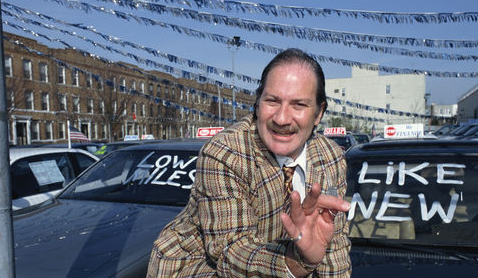 Did I tell you about the time I blew a job interview? It was not my finest moment.
Did I tell you about the time I blew a job interview? It was not my finest moment.
It was a phone interview, one I thought I had done well to prepare for. I had researched the company, made notes of questions to ask, and had practiced answers to potential questions the hiring manager might ask.
I felt so prepared that I turned out the lights and went out of town for the weekend.
On Monday morning I was still confident, opening my computer and by memory typing in the company website. With my resume on hand and other notes, I thought I was ready.
Everything was going well until the hiring manager asked me a question about a “crisis plan” and I began talking about the need for a global response, especially given the factory in India.
The silence on the other end was deafening.
“What are you talking about?” she barked.
Wondering why she was upset with me, I said, “The company’s overseas operations, I’m looking at right here on your website.”
Again, radio silence.
Apparently I had researched the wrong company.
In my defense, there was a one-letter difference between the two companies. And both happened to be in the same industry doing very similar work.
Still, the hiring manager was not amused. Nor impressed that I had done research.
The fault was mine and I lost the opportunity. All my preparation didn’t matter.
My one shot was gone.
Embarrassment sunk in. Humiliation. The agony of defeat.
My incorrect preparation was similar to an Olympic athlete who, after spending years preparing for the shot put event, arrived at the games to discover he had mistakenly entered the discus throw. While knowing everything about the shot put and being 100% prepared to compete, all the preparation in the world would not impress the judges if he could not throw the discus.
Thank goodness I was not competing in the Olympics with millions of people watching this drama unfold. Not to mention the weight of disappointing my countrymen either.
In many ways interviewing for a job is like preparing to compete in an Olympic event. You’ve got one shot at glory; if you make a mistake it could cost you the gold medal (job).
You may think I’m crazy, but consider this:
Preparation: Olympic athletes train and prepare for years for one moment to capture their dream of winning a medal. Job seekers have even less time to prepare a specific interview, however similar to athletes we are training every day for our next job. If you don’t see that you are kidding yourself. We should hone our craft, work on our skills and update our resumes so we are ready for that one moment when it really counts. Take time to assess your skills as they relate to your industry and jobs you might interview for – do you need to make improvements? Update your resume at least once a year with your accomplishments. And network constantly so you are ready when you want to make a career move.
Practice Makes Perfect: Olympic athletes are “in it to win it”. Their job leading up to the Olympics is to practice every day with the goal of doing better than the day before. Many job seekers prepare for networking events or interviews up to a point then stop, thinking they’ve “done enough”. Let me tell you it’s never enough and “winging it” is not a winning strategy. You’ve got to practice everything from your answers to knowing what you’re going to wear. Even practice smiling in front of a mirror. I’m not kidding, this really works.
Mental Focus: Athletes are masters at focusing on the job at hand and tuning out everything else in order to do their very best. Job seekers should laser-focus their attention on the interview: research the company, know in advance how you will answer potential interview questions and practice those answers out loud, develop your professional story that summarizes who you are instead of boring the hiring manager with every detail of your life. Before walking in to the interview, clear your head and refocus your mind – nothing else is important at that moment.
Preparation. Practice. Focus. These are key ingredients to success whether you’re an athlete or a job seeker.
And take it from me: make sure you have the correct spelling of the company as well as the correct website. Researching the wrong company is a mistake that could cost you the interview.



![MP900387413[1]](https://i0.wp.com/www.tamicannizzaro.com/wp-content/uploads/2014/02/MP9003874131.jpg?resize=214%2C300&ssl=1)



 Like Tami, I was terminated once (By my best friend, BTW – he is now on the board of the agency I lead, so I got him back – ha!), but you don’t have to be unemployed to learn something from this book.
Like Tami, I was terminated once (By my best friend, BTW – he is now on the board of the agency I lead, so I got him back – ha!), but you don’t have to be unemployed to learn something from this book. 

